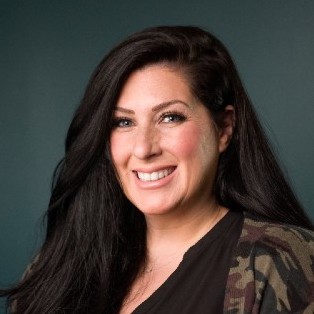So many parents start their day wanting to have playful moments and have genuine conversations with their kids. Unfortunately, most of the time, those plans are interrupted by the inevitable stream of “Stop that! No!” and “Because I said so!”. You may be asking yourself, is it possible to change that?
Behavioral and developmental health experts suggest parenting more positively can yield closer parent/child relationships.
Our team at Corken + Company found these mindful practices helpful to anyone wanting to try more positive parenting and connect deeply to their child!
Respect and Autonomy
If possible, establish mutual respect early. Thornton mom and founder of The Village Parent parent coaching. Kacie Morrish, often advises parents of toddlers. She utilizes the RIE (Resources for Infant Educarers) method within her work. This method teaches that children should be seen as individuals, not just tiny people that are inferior.“It’s about having an awareness of the child’s perspective on life,” Says Morrish. “I think a lot of parents go through child rearing and they’re seeing it all from their own perspective and what they want—being in control of their child as opposed to this mindset of facilitating and guiding their child’s journey in life.”In action, RIE involves allowing children to participate in self-care activities, such as dressing and bathing themselves, and making snacks and lunches. Encouraging self-directed play is also a key component. With safety parameters in place, let the child explore and experiment on their own, without stepping in to help or show them how to perform.
Empathy
When there’s conflict between you and your child, pediatrician and author Dr. Candice W. Jones suggests, “Act like a parent but think like a child…we need to learn to co-regulate, not co-escalate.” Some skills to include: taking a deep breath, counting to 10, walking away and responding later. Stating, “I don’t know what to do about this,” or “I’m angry right now, let me take a moment to calm down and think,” models emotional intelligence and self-control.You can guide your kids’ awareness by allowing their emotions (positive, negative, or complicated) to happen, then help them to label their feelings. First, ask questions and wait for a response; extending curiosity rather than judgment helps them feel safe.
Healthy boundaries and discipline
Respecting a child and understanding them as a separate entity rather than an extension of oneself, doesn’t mean taking a permissive approach, states clinical psychologist, Anat Geva, Ph.D. There’s a difference between “anything goes,” and “we need to think through what the best fit is for this situation.”It is important to create boundaries and expectations that honor the child’s autonomy and developmental stage while keeping their safety and well-being in mind. According to Morrish, when introducing a boundary or a teaching moment, try not to lecture as this elicits a fight or flight reaction. Try using statements that elicit a response, and follow with a question: “I’ve noticed … have you noticed that too?” then, “I wonder how we could work through that. What do you need?”
Patience and consistency
When it comes to becoming a more positive parent Morrish recommends experimenting with different things. “There’s not necessarily a right or wrong, there’s just effective and ineffective, and sometimes it’s a unique combination for our kids,” says Morrish. Morrish advises her clients to start with their family’s values and goals. These values and goals will drive what tools they’ll need. For example, if a parent’s goal is for their kids to “come to them with anything,” they might try focusing on asking them questions without judgment.You can always reach out for help. There is no reason to go down this road on your own. Talk with your pediatrician, who might offer a helpful perspective about certain behaviors. What is the payoff for this type of parenting? Kids develop self-esteem, have reduced stress, share control and responsibility, and have bonded relationships, according to Morrish.





